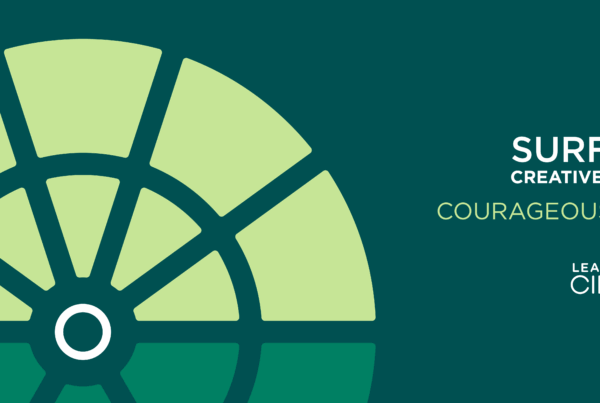As I reflected upon the year that has fallen away and the new one now upon us, I have been drawn to share a few thoughts that inspire me as I take stock, enliven meaningful priorities and begin anew in my personal and professional leadership practice for staying the course.
I am intrigued by the story of Jascha Heifetz who started playing the violin at three years old and played in the United States for the first time at Carnegie Hall at the age of 16. He is widely regarded as one of the finest violinists of all time and continues to be admired for his immaculate technique and a tonal beauty that many violinists still regard as unequaled. He was deeply aware of what mastery requires, commenting, “If I don’t practice one day, I know it; two days, the critics know it; three days, the public knows it.”
It is arresting and stirring to ponder Aristotle’s bold assertion, “We are what we repeatedly do.” While “who we are” is far more than what we do or one thing that we do, what we do repeatedly is action exemplifying valued priorities springing from our beliefs and thoughts. Aristotle and Heifetz serve to remind us that excellence entails consciously choosing our dedicated action.
Leadership Leads
So what then of being an excellent leader? Leadership leads! At its best, leading comprises the ability to create and ensure the conditions for people and the organization as a whole to thrive. Our research and experience tells us that the organization will never outperform the mindset, capability and capacity building of the top leader and those of the senior team. Today’s requirements demand that senior leaders consciously develop their mindset, capability and capacity to think and act in ways that open up and evoke conditions of creativity, engagement, innovation, alignment and connection that result in competitive advantage. It is significant then, that leaders be conscious and conscientious about what they are “repeatedly doing” to create (or not create) these outcomes.
The Deliberate Practice of Practice
After 26 years of supporting leaders in these endeavors, I have learned that leaders can only lead from the “place” of their own development. In other words, where we are, is where we are. We grow and change as we see differently, recognize our own faulty narratives and develop critical new awareness’s that over time generate more complex meaning making systems and higher states of consciousness equipping us for new behaviors and results. Awareness is the gateway to higher consciousness. Greater awareness does not have to be for a select few. Greater self, other and systems awareness can be obtained through deliberate practice. This is why understanding our growth edge as a leader is vital to equipping us for better outcomes.
Practicing Your Leaders PATH
Significant traction is realized when leaders (myself included) consistently cultivate their deeply personal PATH. The PATH acronym provides four fundamentals for our very human and soulful leadership journey of inner development and outer mastery. Deliberately working at this practice can be life changing and is filled with the juice to move us to higher self-awareness and expanded consciousness. It is through refinement of this practice that I can assert that big things happen by small and seemingly simple things done consistently over time.
- Practice Awareness. Devoting oneself to a deliberate personal practice for expanded awareness, insight and connection is the inner work that leadership requires. Cultivate a daily practice that quiets your mind, expands your soul, causes you to see more deeply inward and far more expansively outward that overtime becomes a relied upon routine. This can take the form of meditation, prayer, poetry, visualization, inspiring writing & music, reflection, honest assessment and focused intention.
- Attend to what falls. As we work with and see more clearly our intentions, thoughts and behaviors, inspiration, insight and expanded wisdom will come – often subtly and quietly throughout the week. Paying attention to the more silent whisperings can be hard and yet, paying attention is how we learn to attend to what emerges. When thoughts and insights come it is a good practice to write them down. By intending to attend, we open moments of clarity, deepening our inspiration and courage to work with them more deliberately.
- Trust iterative action. Attending does not live in our minds, it lives in action. I have found that when I “attend” to what falls it usually means I need to “do” something. As leaders and people, the thing that generally stops unchartered action is fear. We don’t trust our intuition, our insight and our inner voice when it goes against all we have done to be safe and to uphold our image and view of success. However, if we are to plow a conscious path we must trust our new awareness enough to act. We can “hold” our new actions authentically by giving ourselves permission to let go of “perfect” action and model instead, iterative progress. In this way, we choose to boldly act and follow through while paying attention to see the value of experimenting in the lab of action. In taking action that allows for iterative improvement we open up room to reflect, learn, and improve with each iteration and concurrently open up room for others to do the same.
- Hold your center. Often times we may have an insight about how we can be our best self only to find that someone or something has “caused” us to slide into the person we don’t want to be any longer. This happens for all of us and acutely noticing is actually progress – I am more fully aware of what takes me off track. Learning that we have to the power to hold our intention in action from a place of deep awareness is part of building higher consciousness and doing it is the other part! And, part two is, well, hard! To hold our centered state of being regardless of the circumstance is where we finally develop true mastery and begin to see finer and finer mastery as possible…and then, we begin anew.
May our hopes, dreams, insight and conscious iterative action deliver outcomes that matter in 2015. I am eager for the New Year to begin…
-Cindy Adams
Senior Vice President, North America Operations &
Organizational Development and People; Founding Partner






A potent and charming commentary for the new year Cindy.Love your simplicity and practicality in the use of the term PATH.Would serve leaders in all domains well to follow/practice.I could not help however to sense a kind of ‘imbalance&disservice’ that the word leader evoked in me, as I read through the posting.[no fault of yours]The kind of baggage&expectations&burden we attach to it.On further reflection,the kind of ‘evil’ commmitted in the exercise of Leadership….national, corporate and personal.Your PATH practice will definitely increase our mindfullness and hopefully lead to better ways and outcomes.I love your use of the term ‘attend’ with its action orientation… to complement its normal ‘showing-up’.Why can’t we dedicate our practice to cultivating ‘ATTENDERS’….making the exercise and recognition of leadership more democratic …available to us all….and shining the light where there is greater reason for optimism…..the collective.Isn’t this another ‘calling’ of the Leadership Circle?Thanks for the provocation.Congrats.
N-j0y
nAz
I read your article with particular interest. It reminds me of Malcolm Gladwell’s book “Outliers.” But it applies to the development of personal skills, and the mind itself. I’ve been studying this myself, in retirement, to understand the course I took in my own career. Its part of a larger effort to understand myself. Well done. I look forward to everyone’s comments.
Great article! I love the quote, “excellence entails consciously choosing our dedicated action.”
Cindy, outcomes that matter. I like it. Meaningful positive impact. We are aligned. Thanks!